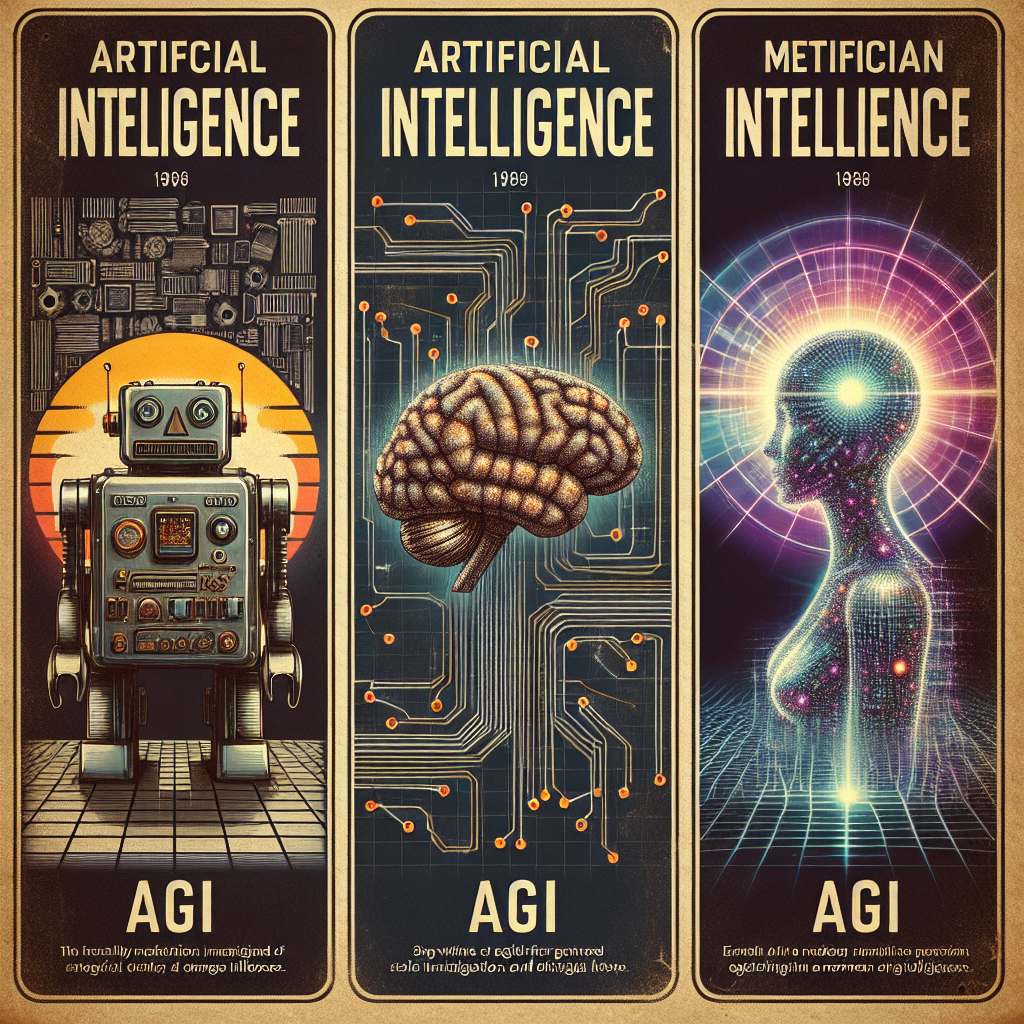From Sci-Fi to Reality: The Evolution of Artificial General Intelligence
Artificial General Intelligence (AGI) has long been a staple of science fiction, with popular culture depicting superintelligent robots and computers that can think and reason like humans. However, the reality of AGI has been slower to materialize, with researchers facing numerous challenges in developing machines that possess true general intelligence. In this article, we will explore the evolution of AGI, from its origins in science fiction to the cutting-edge research being conducted today.
Origins of Artificial General Intelligence
The concept of AGI can be traced back to the early days of computing, with pioneers such as Alan Turing and John McCarthy laying the groundwork for the development of intelligent machines. Turing’s famous Turing Test, which proposed that a machine could be considered intelligent if it could fool a human into thinking it was also human, sparked a debate that continues to this day.
In the 1950s, McCarthy coined the term “artificial intelligence” and laid the foundation for the development of intelligent machines that could perform tasks traditionally reserved for humans. However, early AI systems were limited in their capabilities, with researchers focusing on narrow tasks such as playing chess or solving mathematical problems.
The Evolution of Artificial General Intelligence
As computing power increased and algorithms became more sophisticated, researchers began to explore the possibility of developing machines that possessed true general intelligence. This led to the development of neural networks, which are inspired by the way the human brain processes information. Neural networks have proven to be highly effective in tasks such as image recognition and natural language processing, laying the groundwork for the development of more advanced AI systems.
One of the key milestones in the evolution of AGI was the development of deep learning algorithms, which have revolutionized the field of artificial intelligence. Deep learning algorithms are able to analyze vast amounts of data and learn from it, allowing machines to perform complex tasks such as playing video games or driving cars. These algorithms have led to the development of powerful AI systems such as AlphaGo, which defeated the world champion Go player in 2016.
Another important development in the field of AGI is the emergence of reinforcement learning, which allows machines to learn from their experiences and improve over time. Reinforcement learning has been used to develop AI systems that can play video games at a superhuman level and even beat human players in complex strategy games such as Dota 2.
Challenges in Developing Artificial General Intelligence
Despite the progress that has been made in the field of AGI, researchers still face numerous challenges in developing machines that possess true general intelligence. One of the key challenges is the problem of common sense reasoning, which is the ability to understand and reason about the world in a way that is similar to humans. Current AI systems lack this ability, leading to errors and misunderstandings in tasks such as natural language processing.
Another challenge is the problem of transfer learning, which is the ability to apply knowledge learned in one task to another task. Current AI systems are often limited in their ability to transfer knowledge across different domains, leading to the need for extensive training data and computational resources.
Furthermore, the issue of ethical and societal implications of AGI is also a significant challenge that researchers must address. As AI systems become more powerful and autonomous, questions arise about their impact on society, including issues such as job displacement, privacy, and bias in decision-making.
Frequently Asked Questions about Artificial General Intelligence
Q: Will AGI surpass human intelligence?
A: While it is possible that AGI could surpass human intelligence in certain tasks, it is unlikely to exceed human intelligence in all areas. Humans possess a unique combination of cognitive abilities, such as creativity and emotional intelligence, that are difficult to replicate in machines.
Q: What are the potential benefits of AGI?
A: AGI has the potential to revolutionize a wide range of industries, from healthcare to finance. AI systems could help doctors diagnose diseases more accurately, assist in financial decision-making, and even drive advances in scientific research.
Q: Are there potential risks associated with AGI?
A: Yes, there are potential risks associated with AGI, such as the loss of jobs due to automation, bias in decision-making, and the potential for AI systems to be used for malicious purposes. It is important for researchers and policymakers to address these risks and develop ethical guidelines for the development and deployment of AGI.
Q: When will AGI become a reality?
A: It is difficult to predict when AGI will become a reality, as researchers are still working to overcome numerous challenges in developing machines that possess true general intelligence. However, significant progress has been made in recent years, and it is likely that AGI will become a reality within the next few decades.
In conclusion, the evolution of AGI has been a fascinating journey, from its origins in science fiction to the cutting-edge research being conducted today. While researchers still face numerous challenges in developing machines that possess true general intelligence, the potential benefits of AGI are vast and could revolutionize a wide range of industries. It is important for researchers and policymakers to address the ethical and societal implications of AGI and work towards developing AI systems that are safe, reliable, and beneficial for society as a whole.

